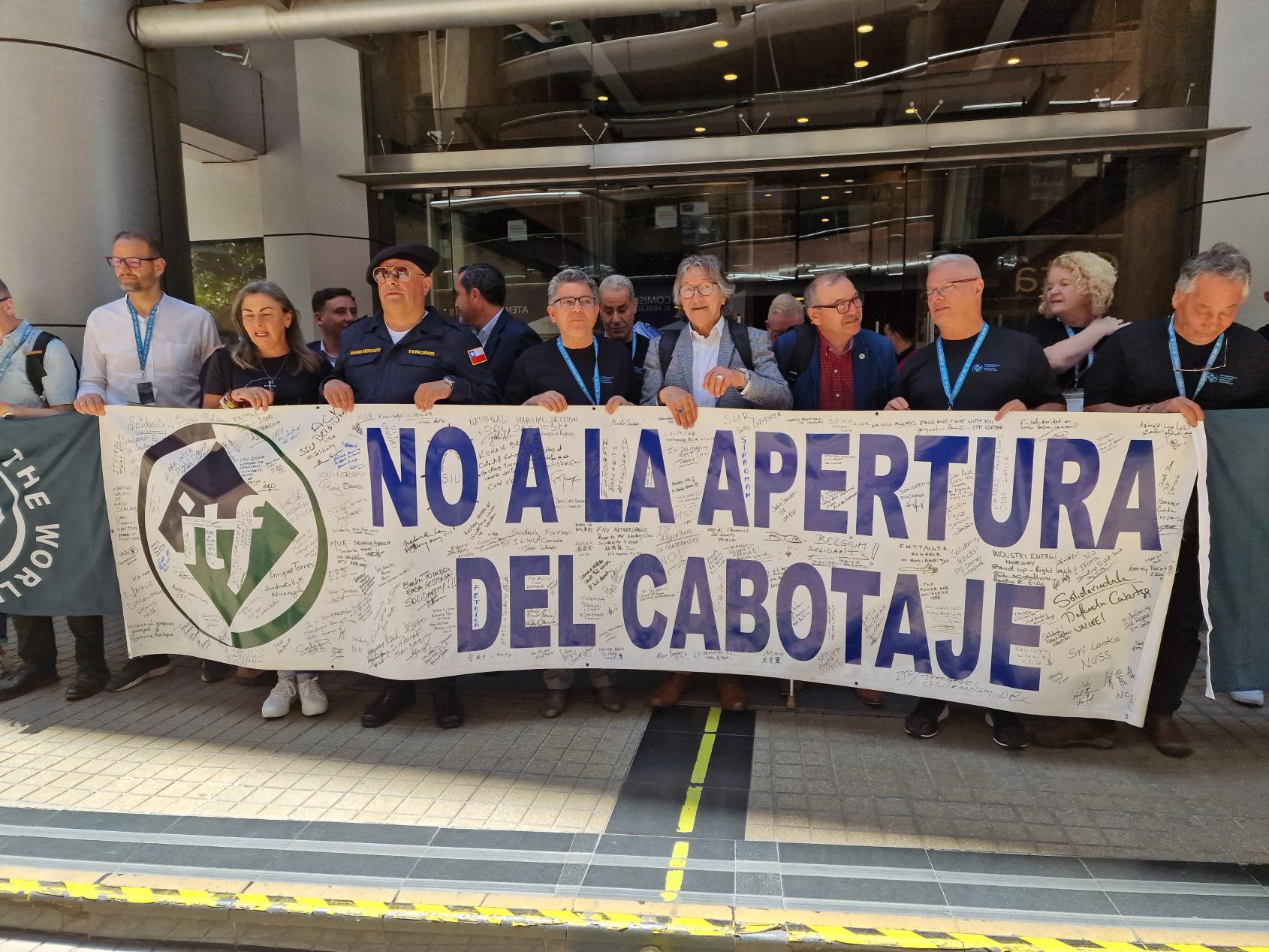
7 December 2023, Santiago – Delegates from across the world at the International Transport Workers’ Federation (ITF) dockers’ and seafarers’ conferences in Santiago, Chile, joined with Chilean trade unionists to hand in a letter to the presidential palace in the capital of Santiago in protest at the government’s plans to change the law on cabotage.
The proposed Bill would mean that existing cabotage agreements – where shipping operations between Chile’s ports is only carried out by Chilean seafarers and domestic shipping companies – would be lifted, allowing for international companies to take the work.
Cabotage laws governing maritime activity are widespread, currently existing in 91 countries covering 80 percent of the world’s coastlines of UN maritime states. These laws are geared towards protecting local shipping industries, and so ensure the retention of skilled maritime workers and the preservation of maritime knowledge and technology and promote safety and national security.
The letter which was addressed to the Minister of the Economy Mr Nicolás Grau Veloso, was received by the under-minister who met with ITF representatives including ITF General Secretary Stephen Cotton, ITF President Paddy Crumlin, Hector Azúa, President of the Union of Merchant Navy Officers (SI. MAR), David Heindel, ITF seafarers’ chair and Carlos Augusto Muller, ITF Latin American and Caribbean regional seafarers’ chair.
Speaking after the meeting, Stephen Cotton said: “It was a generally positive meeting. ITF made that points that cabotage is important for Chile’s economic stability and national security, as well as for supply chain security and stability – points which were received sympathetically. There were areas that we couldn’t agree on today, such as how you can enter and exit Chilean waters, but they expressed their willingness to engage with trade unions and welcomed further guidance and support from the ITF to give better protection to maritime workers.”
Paddy Crumlin, ITF President said: “The ITF and its affiliates have been campaigning globally to underline the importance of national cabotage laws and the value of having domestic jobs in national waters, as well as domestic employment conditions for international seafarers in cases where national seafarers are not available.”
“Whether we are in Chile or Australia, we will prosecute the case for national seafarers working on their own coastlines, and we remain resolute in our commitment to the long-term viability of our domestic shipping industries not just for the employment opportunities that they deliver the maritime workers of today but the vital social and economic importance of shipping and seafaring for our countries.”
Hector Azúa added: ‘As Chilean workers, we are against the erosion of national cabotage laws. There is a real risk that Chilean shipowners could reflag from national flags to flags of convenience, which would mean the loss of more than 30 years of collective bargaining and potential job losses. We will fight to continue the dialogue between the government, workers and the ITF to develop a better outcome that benefits the working class and safeguards our own strategic interests as a maritime nation.’
END
Media contacts: ITF: media@itf.org.uk
More on the ITF’s cabotage position: https://www.itfglobal.org/en/news/new-report-circuit-breaker-providing-policymakers-fact-based-analysis-global-cabotage-laws
About the ITF: The International Transport Workers’ Federation (ITF) is a democratic, affiliate-led federation recognised as the world’s leading transport authority. We fight passionately to improve working lives; connecting trade unions from 147 countries to secure rights, equality and justice for their members. We are the voice for nearly 20 million working women and men in the transport industry across the world.


Post new comment